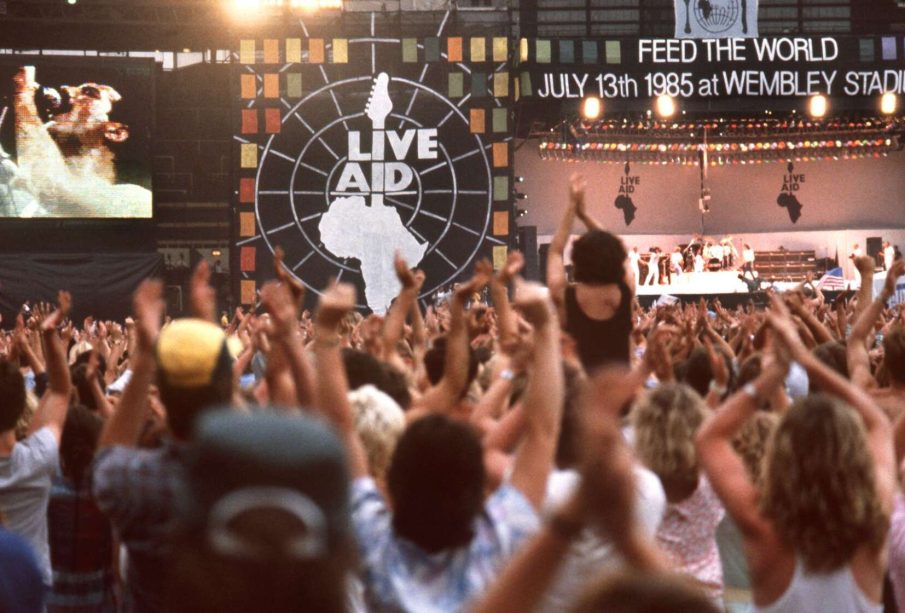The Enduring Legacy of Live Aid: A Concert for Humanity

Introduction
Live Aid, a monumental benefit concert held on July 13, 1985, marked an important milestone in the realm of music and humanitarian efforts. Organised by Bob Geldof and Midge Ure, it aimed to raise funds for famine relief in Ethiopia and became a symbol of global solidarity. With performances from iconic artists such as Queen, U2, and David Bowie, Live Aid not only generated substantial financial contributions but also set a precedent for future charitable events.
The Concert’s Impact
Held simultaneously at Wembley Stadium in London and John F. Kennedy Stadium in Philadelphia, Live Aid attracted an audience of over 162,000 people and was watched by approximately 1.5 billion viewers worldwide via live broadcast. The event raised over £150 million (equivalent to around £450 million today) for famine relief efforts. Beyond the immediate financial aid, Live Aid served a dual purpose: it raised awareness of the devastating famine and prompted world leaders to take action.
The concert also catalysed a shift in how music could be harnessed to effect change. It laid the groundwork for mega-events aimed at raising money for various causes, inspiring future concerts such as Live 8 in 2005 and the recent Global Citizen concerts in 2020 and 2021. Many artists have cited Live Aid as a turning point in their careers, establishing a link between music and social responsibility.
Lessons Learned
Live Aid demonstrated the power of collective action. The collaboration between artists from various genres, cultural backgrounds, and countries showed that music has the ability to transcend boundaries and unite people for a common cause. The simplicity of the message – to help those in need – resonated globally, transforming how charitable initiatives were approached in the entertainment industry.
Conclusion
As we reflect on the legacy of Live Aid, it is essential to recognise both its achievements and its lessons. The event not only provided immediate relief to millions of people suffering from famine but also highlighted the necessity of ongoing humanitarian efforts. Today, the spirit of Live Aid continues to inspire new generations of artists and activists. Looking ahead, we can foresee a continued fusion of music and activism, encouraging each of us to leverage our platforms to contribute to positive change in the world.









